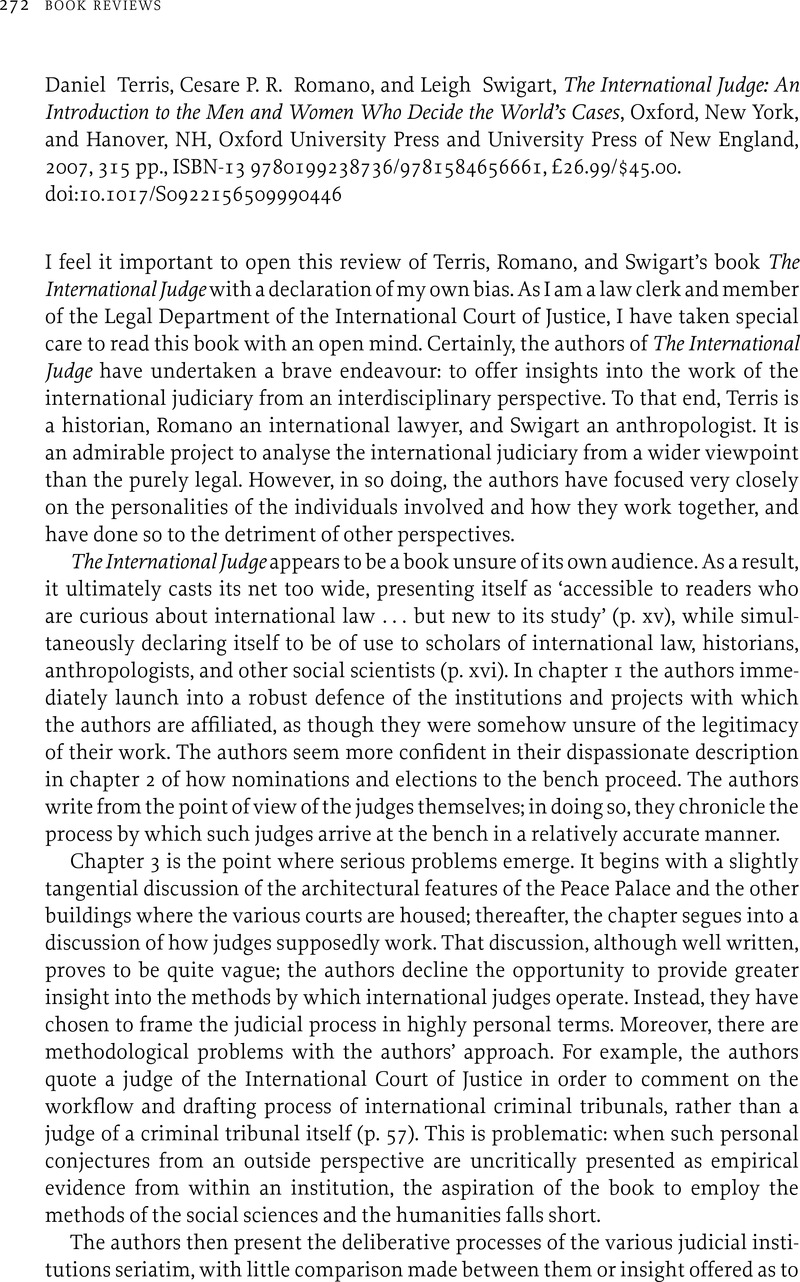Article contents
Daniel Terris, Cesare P. R. Romano, and Leigh Swigart, The International Judge: An Introduction to the Men and Women Who Decide the World's Cases, Oxford, New York, and Hanover, NH, Oxford University Press and University Press of New England, 2007, 315 pp., ISBN-13 9780199238736/9781584656661, £26.99/$45.00.
Published online by Cambridge University Press: 02 February 2010
Abstract

- Type
- BOOK REVIEWS
- Information
- Copyright
- Copyright © Foundation of the Leiden Journal of International Law 2010
References
1 A recent book by Neil Duxbury, The Nature and Authority of Precedent (2008), carefully explores this point in Anglo-American common law whence the principle originates. The practice of the International Court of systematically referring to its cases and considering their findings is similar: see Application of the Convention on the Prevention and Punishment of the Crime of Genocide (Croatia v. Serbia) (Jurisdiction), Judgment of 18 November 2008, where the Court explained at para. 53 that ‘[t]o the extent that the decisions contain findings of law, the Court will treat them as it treats all previous decisions: that is to say that, while those decisions are in no way binding on the Court, it will not depart from its settled jurisprudence unless it finds very particular reasons to do so.’
- 1
- Cited by


